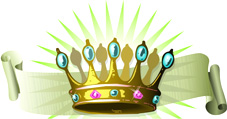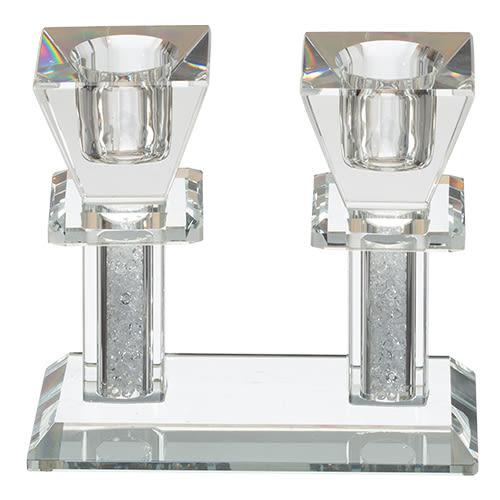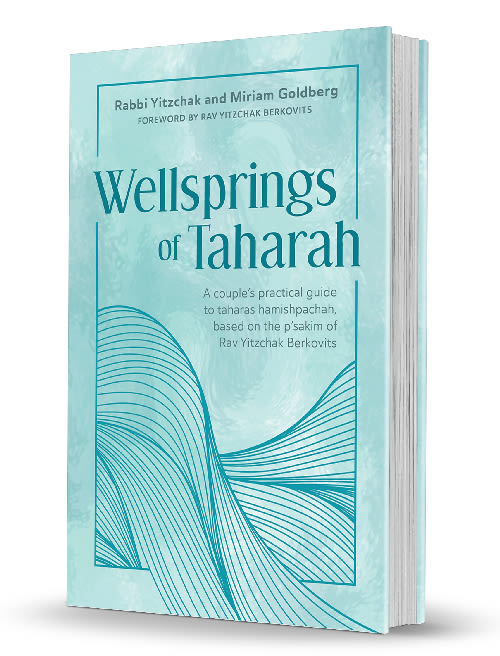
The King Awaits You
In the language of the holy Zohar, the grateful person is immediately allowed to enter the King's palace. The King awaits him with great anticipation…

Translated by Rabbi Lazer Brody
In Forest Fields, Part 49
The light at the end of the tunnel
Hashem decides every person’s tribulation and suffering, but Hashem also has prepared a solution. One should therefore strengthen himself to remember that there is no total sorrow. The salvation has already been prepared even before the trouble befell him.
Knowing that everything comes from Hashem, one can find encouragement and avoid falling into darkness or despair. Despair ruins hope, as if there were no way out of his problem and nothing to do, as if the stern judgment was irreversible.
There is no such thing as "nothing to do" about a problem or predicament. It only seems that way to man's limited vision, for in truth, one does not know where salvation will come from. Indeed, a person need not worry about where the solution to his problem or predicament will come from. Rather, he should thank Hashem for the problem itself, which is surely for his ultimate benefit, whether it has come in order to arouse him to repentance or in order to cleanse him from sin. One can derive strength in remembering what Rebbe Nachman taught us, that at any given time, Hashem can take the worst situation and turn it completely around for the good.
No matter what, there’s never room for despair in our lexicon or in our lives. The most important principle in life that we must engrave on our hearts is that Hashem does everything, and everything He does is for the best. Hashem sees what we don’t see. Hashem can, in one moment, transform everything to the good! If you have faith that it is possible to ruin things, have faith that it is possible to repair them! Hashem prepares the medication before the injury!
As long as a person fails to believe that everything is for the good, and as long as he doesn’t express his thanks, then every time he approaches Hashem, he’ll have the feeling that something in life is askew. His subsequent "prayer" is then worthless crying and complaining, and it only annoys Hashem.
When someone approaches Hashem with the feeling that things are bad for him, his prayers go unheeded. Sefer HaMidot says: "Through sadness, Hashem is not with a person." On the other hand, when a person expresses his abundant gratitude to Hashem, his prayers are readily accepted. In the language of the  holy Zohar, the grateful person is immediately allowed to enter the King's palace. The King awaits him with great anticipation and asks, “Who has come to bring me a gift, to express his thanks to me? Come, my son…” The grateful person now merits an audience with the King – Hashem – and can now talk to Him about anything.
holy Zohar, the grateful person is immediately allowed to enter the King's palace. The King awaits him with great anticipation and asks, “Who has come to bring me a gift, to express his thanks to me? Come, my son…” The grateful person now merits an audience with the King – Hashem – and can now talk to Him about anything.
 holy Zohar, the grateful person is immediately allowed to enter the King's palace. The King awaits him with great anticipation and asks, “Who has come to bring me a gift, to express his thanks to me? Come, my son…” The grateful person now merits an audience with the King – Hashem – and can now talk to Him about anything.
holy Zohar, the grateful person is immediately allowed to enter the King's palace. The King awaits him with great anticipation and asks, “Who has come to bring me a gift, to express his thanks to me? Come, my son…” The grateful person now merits an audience with the King – Hashem – and can now talk to Him about anything. Here’s an example: A person that hasn’t been able to find his or her soul mate should say, “Thank you very much, Hashem, that I haven’t yet found my partner in life. Surely this is for the very best. Enable me to understand what wrongdoing I’ve committed, what I need to rectify, and how to pray for what I lack." All this should be said with a smile and with emuna, for as soon as he begins to complain, he severs himself from Hashem. Hashem didn’t create the world so that His creatures will weep; instead, He wants us to smile and have faith in Him, realizing that all of His ways are for our ultimate good.
Once again, the fact that “the gateways of tears are never locked” doesn’t refer to tears of complaint and sadness. This kind of crying not only locks all the gates but even provokes harsh judgments, Heaven forbid. In contrast, the holy Zohar states that the gates of gratitude are never locked. Gratitude enables prayers to be accepted and lays the foundation for salvation from any problem.
Many people pray profusely yet are stricken again and again with more and more difficulties in life because they cry and complain. Expressing gratitude is always better than complaining. Once a person feels joy and is certain that not even a tiny note of crying and complaining has crept, he is then free to ask for all his heart’s wishes, especially for clarification of the truth, repentance, and emuna.
To be continued.













5/23/2012
missing part! Dear sirs, Thank you very much for the exelent work on the site. I just want to bring to your attention that part 50 of In Forest Fields is missing. Please check link. http://www.breslev.co.il/categories/spirituality_and_faith/spiritual_growth/in_forest_fields.aspx?category=61&chapter=208&pageid=3&language=english Best regards, and many thanks. Eli Goldman
5/23/2012
Dear sirs, Thank you very much for the exelent work on the site. I just want to bring to your attention that part 50 of In Forest Fields is missing. Please check link. http://www.breslev.co.il/categories/spirituality_and_faith/spiritual_growth/in_forest_fields.aspx?category=61&chapter=208&pageid=3&language=english Best regards, and many thanks. Eli Goldman